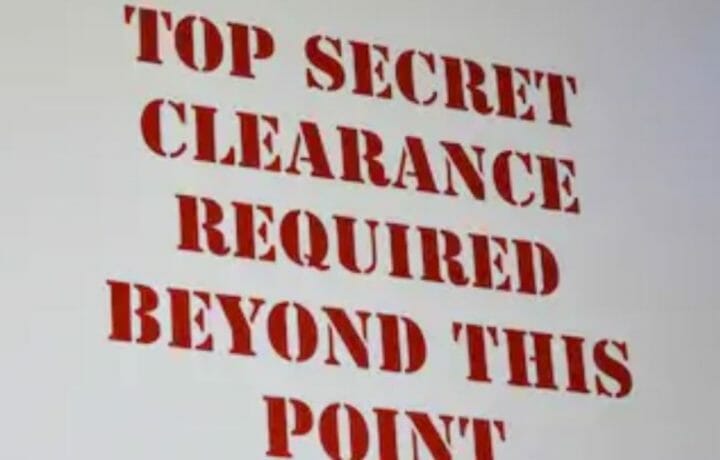While retail and hospitality may be taking the biggest hits as the economy adjusts to the coronavirus, national security workers may also experience major changes to ‘business as usual’ as states begin to reopen. Virginia Gov. Ralph Northam announced plans to reopen the state, including Northern Virginia, will move forward Friday, with face masks required in indoor places. Maryland and D.C. have also begun phased reopening. Open doesn’t mean unchanged, however. The security clearance process is just another element the government is looking at as it considers long-term impacts from seemingly short-term COVID-19 changes.
At a recent webinar hosted by the Intelligence and National Security Alliance, Director of the National Counterintelligence and Security Center, William Evanina, was asked if he thought some positions which currently require a security clearance, may someday not, now that many of those workers have been teleworking in at least some capacity.
“I do,” Evanina replied. “Just because you work in the IC, and just because you have a Top Secret clearance does not mean everything you do is classified.”
Evanina noted how the mission has not stopped just because some workers are no longer in the office. But any change will require looking at the tools, infrastructure, and vulnerabilities.
“I think we need to take a few steps back and maybe look at our employees, and look at our human capital, and say ‘what do we really do?'” said Evanina. “It used to be a pass/fail. To get in you had to have a security clearance. Well, that may be the case, but just because you have a security clearance doesn’t mean you can’t work from home to do ‘x’ percentage of your job.”
Many IC workers have been doing just what Evanina stated – working from home on days when they don’t need to access classified information, taking advantage of shift schedules or other adjustments to reduce the numbers of individuals in offices and create better opportunities for social distancing.
Many cleared professionals visiting ClearanceJobs have reported it has been easy to shift to spend some days working from home, and only go into the office when they need to access classified information. But while it’s possible, it doesn’t come without risks, and there are still questions that need to be answered about how to implement telework securely.
“I will caveat that though – as we move aggressively toward what that might look like, we have to find effective solutions to protect that work, protect that employee, to protect our communications from the adversaries who are absolutely actively watching how we do this right now,” said Evanina. “And right now, our communication from home to work is not safe. Whether it’s in the private sector, and especially not in the government. So we have to find effective security solutions to get where we need to be.”
One of those solutions is being rolled out – albeit in a very limited fashion – for the U.S. Air Force. The deviceONE initiative is a special project out of the Air Force Research Laboratory’s Advanced Battle Management System initiative – which provides new, secure ways to connect aircraft, satellites and operations centers. The specially built laptops allow airmen and Air Force employees to access classified information securely.
Trusted Workforce 3.0
Evanina touted the progress made in current security clearance reform efforts. The current inventory of pending cases is currently near historic lows of 180,000 pending cases, and security clearance processing times have improved dramatically. With major reform goals progressing, government officials are asking ‘what’s next?’
“We’re looking at this as what else can we do while we have momentum going forward?” said Evanina. “Now might be the time to enhance 2.0 and say what would 2.5 and 3.0 look like?”
And while the government may be continuing to reframe what a trusted worker looks like, and how to make Top Secret telework possible, one thing that hasn’t changed is the importance of obtaining a security clearance. Evanina noted the importance of cleared workers, and why individuals looking to pursue a national security career should consider obtaining a security clearance a critical part of their job search.




